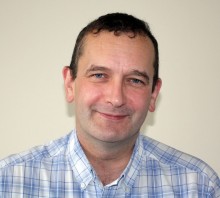 David Best has done a huge amount for the addiction recovery field and for the Recovery Movements in the UK and Australia, in terms of his research, writings, advocacy and a wide range of other recovery-based activities. Where he gets his energy from, I have no idea?
David Best has done a huge amount for the addiction recovery field and for the Recovery Movements in the UK and Australia, in terms of his research, writings, advocacy and a wide range of other recovery-based activities. Where he gets his energy from, I have no idea?
I thought it was worth showing what David thinks about the question, ‘What is Recovery’. I’ve followed his arguments and included quotes from his excellent book, Addiction Recovery: A Movement for Social Change and Personal Growth in the UK.
David makes reference to two attempts to define recovery from expert groups (one in UK and one in US):
‘…a voluntarily maintained lifestyle characterised by sobriety, personal health and citizenship.’ (Betty Ford Institute Consensus Panel, 2007)
‘…voluntarily sustained control over substance use which maximises health and well-being and participation in the rights, roles and responsibilities of society.’ (UK Drug Policy Commission, 2008, p6)
David seems ‘wary’ about these definitions, believing they have the flavour of diagnoses, conditions that people have to meet before they can be called ‘recovered’ or ‘in recovery’. He believes that these definitions do not “fit with the idea that recovery is both a personal quality and a lived experience.” I share David’s concerns in relation to these definitions.
David states that there may be some merit to the approach taken by Philip Valentine of the Connecticut Community of Addiction Recovery (CCAR), who has argued that, ‘You are in recovery if you say you are’.
David says, “This is a pragmatic definition concerned with not excluding people from their group, but it also conveys the sense that recovery is a journey and how people experience it will change over time, and that the commitment and hope that characterise the start of a recovery journey may be the most important ingredients.”
David goes on to point out that recovery involves:
- “sense of belonging in the community (however that is defined)
- a sense of meaning and purpose (which will come from engagement in meaningful activities)
- a sense of hope and belief
- a positive personal identity.”
He emphasises the following principles of recovery, which I believe are very helpful in understanding what recovery is about:
“Recovery does not happen in isolation – it is generally learned from other people who have gone down the same road and who ‘mentor’ or model the methods and principles of recovery.
Recovery happens in the community, not in the clinic. While formal treatments help many people, the recovery journey will continue long after the completion of specialist interventions.
This does not mean that there is no role for specialist treatment, but treatment is only the start of the recovery journey, and it will not be needed by everyone who seeks recovery.
Recovery takes a long time – for most people the journey to stable recovery will take around five to seven years after the last use of the substance, long after the physical part of the process has been managed.
Recovery is better predicted on someone’s strengths, rather than their weaknesses, and so much of the focus of interventions is on helping individuals to build recovery strengths, more often referred to as ‘recovery capital’.
Recovery is a personal process, with individual pathways and experiences, but this does not mean that there are no common themes or ‘typical’ processes, and many of these concern the need for social support.
One of these typical patterns is that people will leave behind their ‘addict identities’ and their journey.”
David finishes by saying:
“Recovery can be visible or invisible. Some individuals will achieve and sustain their recovery through anonymous 12-step fellowships, where their recovery journeys will only be known to other attendees of the fellowship meetings.
For others, recovery will result in leaving behind their ‘addict identity’ as they move away from addict groups and communities into ‘mainstream’ roles in society and they protect their identity by breaking the links with their addicted past.”
To me, this is brilliantly written and sums up things really well. What do you think about what David has to say?
PS. For those of you who do not know, David now lives in Melbourne where he set up Recovery Academy Australia.


